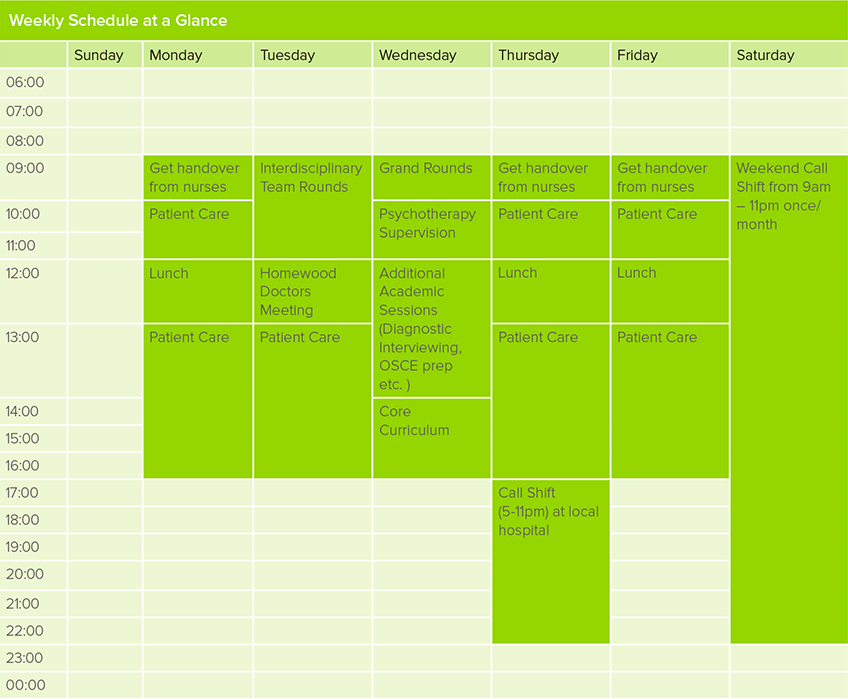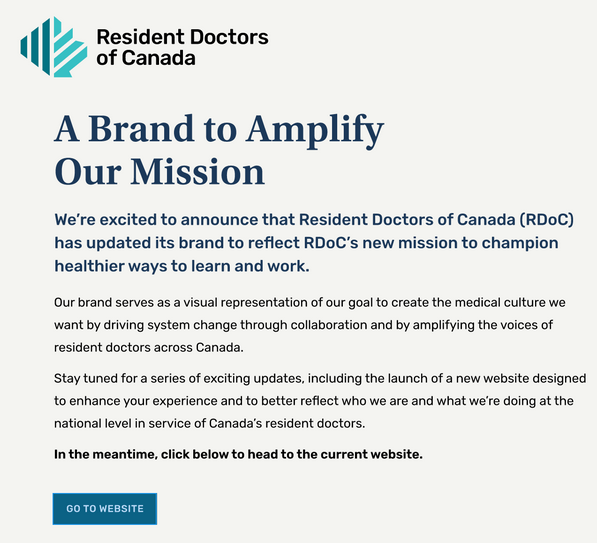PGY-2 Psychiatry – McMaster University
ResidentPsychiatry McMaster University
May 2017
About Me
My name is Amanda Ritsma. I’m a PGY-2 in Psychiatry at McMaster University at the distributed campus in Waterloo. I grew up in Tavistock, Ontario and currently reside in Guelph, Ontario, where I completed my Undergraduate degree. I majored in Psychology and minored in Family and Child Studies. Then I moved to the “golden horseshoe” to complete medical training at McMaster.
Psychiatry gives me the opportunity to spend time with my patients. Sometimes, I spend hours with one person, hearing their story. Our patients allow themselves to be incredibly vulnerable and it is a humbling experience to be given that trust. I also find the psychopathology fascinating, and every day is truly a new adventure.
Clinical Life
What does a typical day of clinical duties involve?

What kinds of rotations are required in your program?
Our program’s rotations are dictated by the Royal College of Physicians and Surgeons.
Our first year is a Basic Clinical Training Year and we rotate through various specialities like an internship. We complete two blocks of internal medicine; one block of adult neurology, neuroradiology, pediatric neurology, family medicine, emergency medicine; various rotations in psychiatry such as addiction medicine, emergency psychiatry; one elective and two selectives, one of which can be in psychiatry.
In third year, we are required to do six months in child/adolescent psychiatry and six months in geriatric psychiatry.
In fourth year, we spend six months in chronic care, three months in consult liaison and three months in collaborative care.
In fifth year, we have a year of electives and selectives that allow us to buff up on skills that we would like to acquire before completing our residency training.

Which of your personality characteristics have been particularly helpful in your field?
First, I think it’s important to be empathic to whatever your patient is bringing to you. It is also important to be patient, as we do not normally get immediate results in psychiatry. Finally, it is important to be able to take care of yourself and to spend time on self-care. The subject matter that we experience everyday can be quite difficult, and it’s important to have an outlet for this.

What are the best aspects of your residency?
I genuinely enjoy my time with patients and the rotations that I am completing. I also really love the extracurricular activities that have been available throughout my training. I have been able to experience so many different aspects of psychiatry through these opportunities, and know it is making me a more well-rounded resident. I am also very thankful for the emphasis that is placed on self-care and resident wellness. I think this breeds excellent habits for the future.
What are the most challenging aspects of your residency?
It can sometimes be challenging to balance everything. Not only do I spend time and energy to be a good resident, but I also still want to be a good friend, daughter, sister and so on.
What is one question you’re often asked about your residency?
I often am asked “do you think you made the right choice?” or “How much time do you have left?” My answers to both of those questions tend to be long winded.
Can you describe the transition from clerkship into residency?
The transition from clerkship to residency is exciting and terrifying. The prospect of becoming a physician and being able to write orders that no one is going to co-sign is a really difficult concept to appreciate. But, what makes it terrifying is also what makes it exciting. When I became a resident, I felt a new sense of patient responsibility, and there is an added level of satisfaction with that. It’s definitely not an easy transition, but in a well-supported program, it’s an exciting time.
What are your future practice plans?
That feels too far in the future to answer. My current plan is to pursue a fellowship in child and adolescent psychiatry. I would love to have a varied practice – I am interested in dual diagnosis, eating disorders, and addiction. It would be great to find a way to build some of each of these things into my future practice. However, I’m always open to new directions.
What are your fellow residents like and how much do you interact with each other?
I feel like the luckiest person in terms of my residency program. In the distributed campus at McMaster University in Waterloo, we are a small group of residents. We interact well as friends and colleagues. We have social representatives in our residency group that plan events that range from dodgeball tournaments to residency-led baking sessions. We have fostered a collegial environment that is based on mutual respect and a genuine enjoyment of being in each other’s presence. We also genuinely enjoy psychiatry. We have had events that are completely educational based, and residents equally pull their weight.

Non-Clinical Life
What are your academic interests (e.g. leadership activities, research)?
I tend to over-commit in extracurricular activities. However, this is one of the ways that I find balance. On tough days, it is helpful to have extracurricular activities to remind me why I do the things I do. Currently, I am the teaching chief and transitioning into the role of call chief for our campus. I will also be transitioning into the role of president for our resident association. I chair a few committees that look at psychiatry from a different perspective – our transcultural psychiatry interest group looks at psychiatry from perspectives that are bigger than day-to-day clinical activities. Our McMust group is a partnership with the psychiatry residents at Mbara University in Uganda. I am also heavily involved in medical student teaching and mentoring, as well as curriculum development and education at the resident level. My involvement with RDoC is based largely in resident resiliency and wellness and resident and physician wellness is an interest of mine.
What is your work-life balance like, and how do you achieve this?
I find that I have to choose the things that mean the most to me, and schedule them into my weekly schedule in the same way that I schedule in my academic requirements. Keeping up with my friends and family is really important, so I will make dinner plans weeks in advance. I also really enjoy baking, so I try to do that as often as I can.
Most of my time off is spent traveling, so I try to spread out my vacation time so that I have a good amount of time off. I have also started to give myself permission to say no to social commitments if it feels more like an obligation. This gives me more time to myself to rejuvenate. I try to reflect on what I need in the moment – do I need to reach out and be with people or do I need to take more time to myself to feel balanced?



